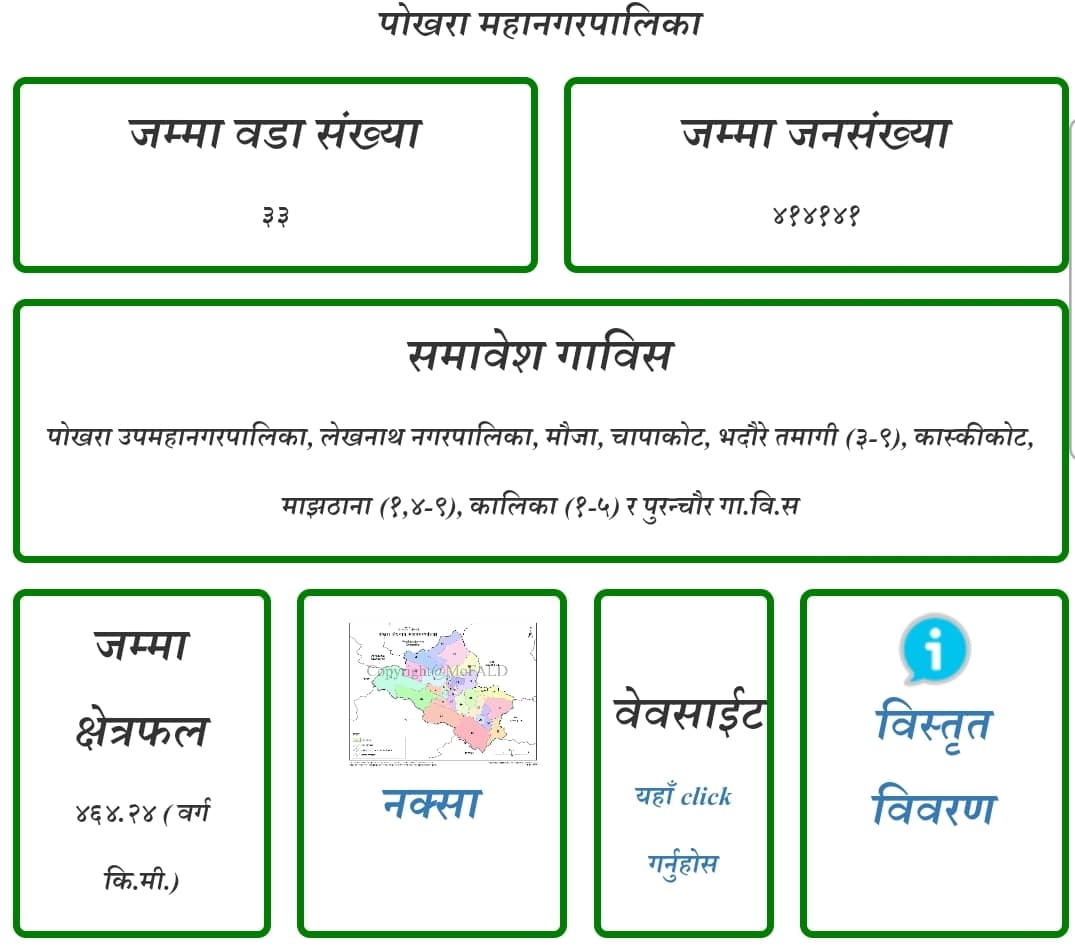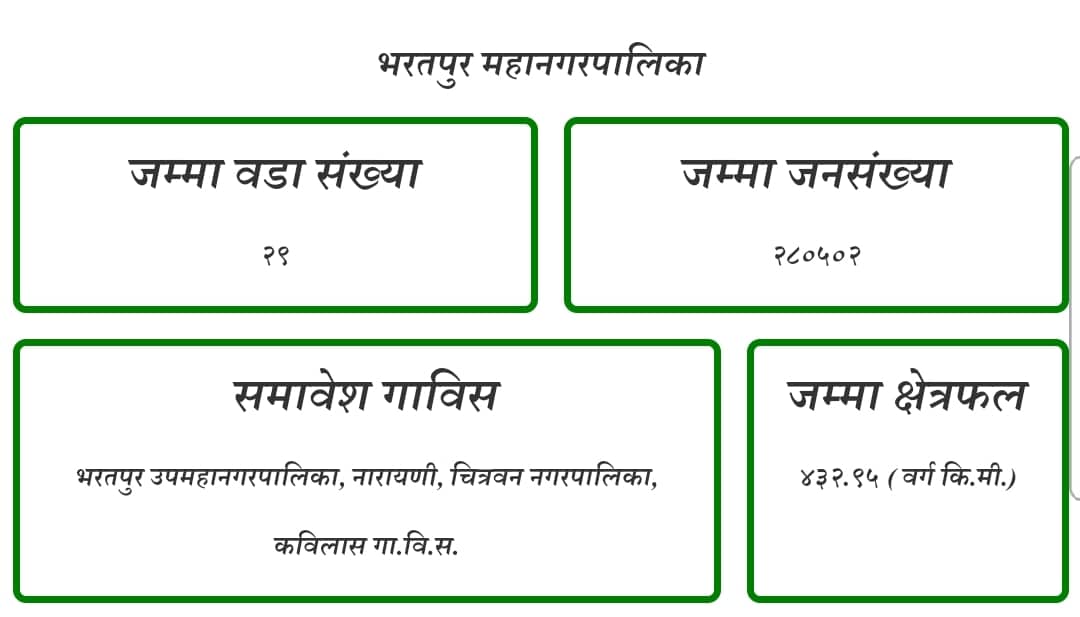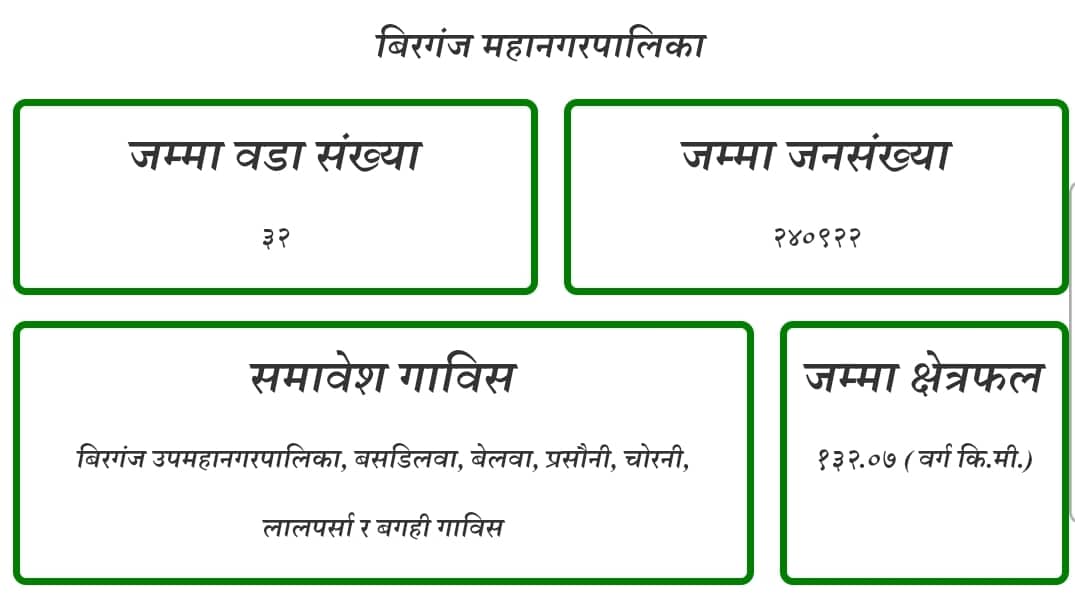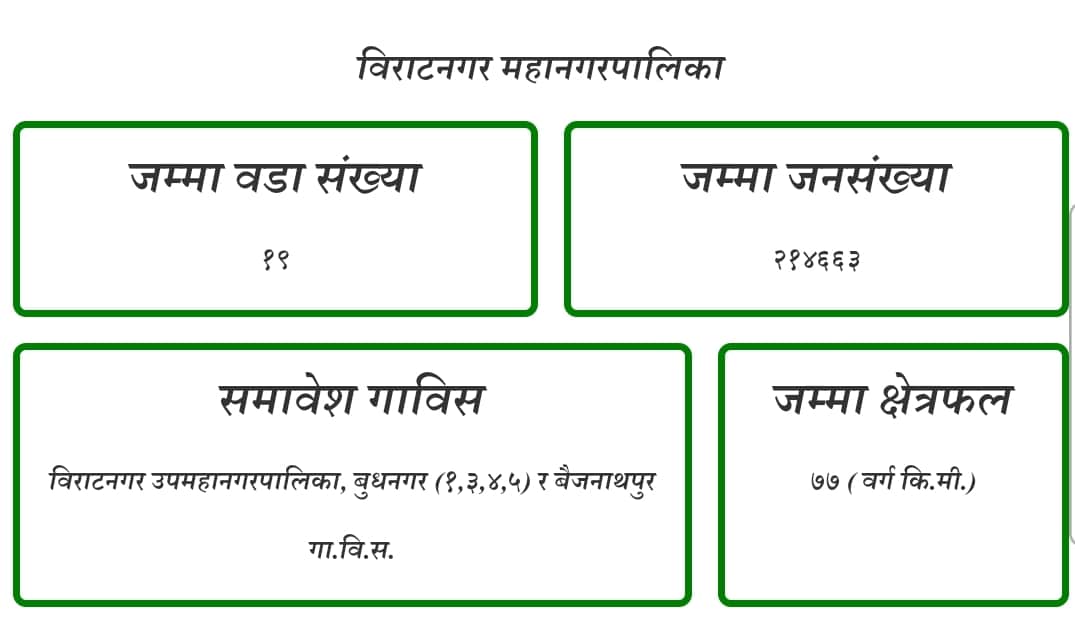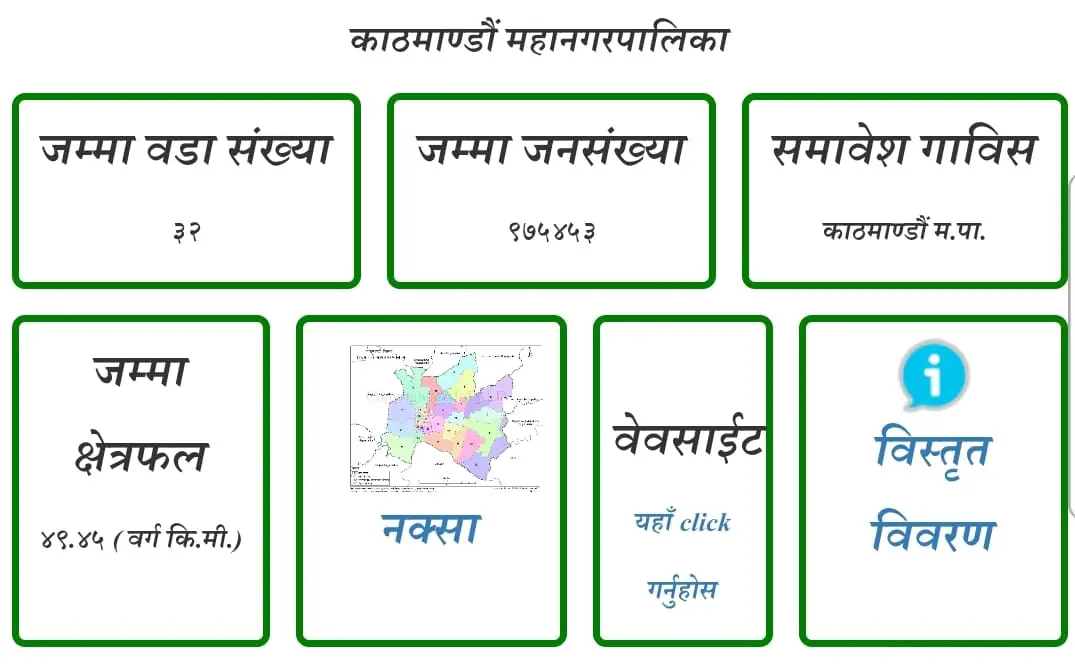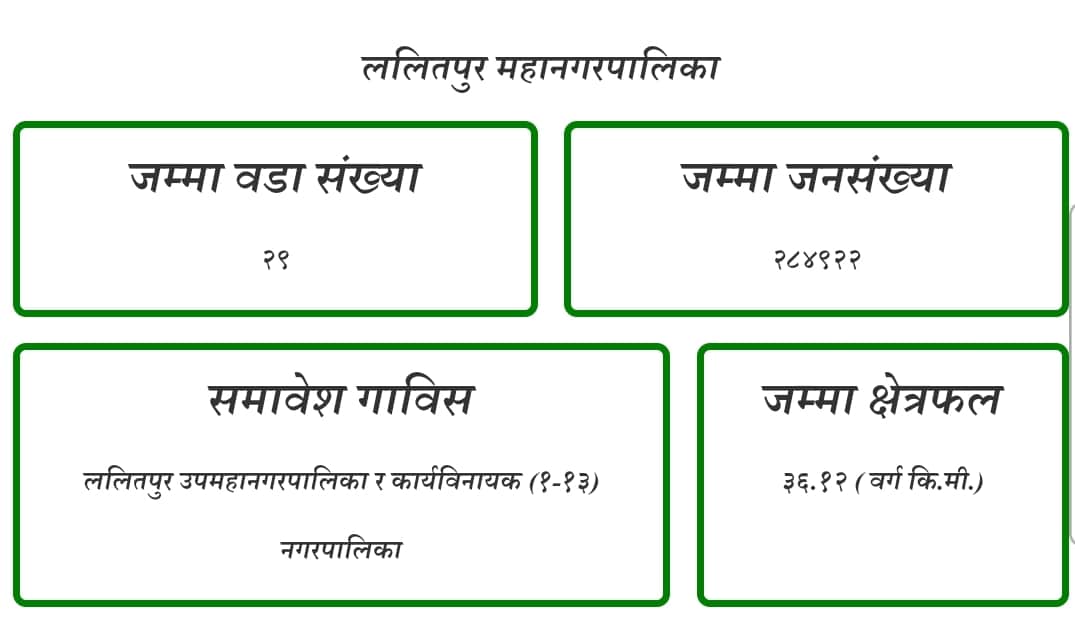A Metropolitan city is a type of local body in the federal structure of Nepal. Metropolitan cities in Nepal fall under the category of municipality in terms of local government in Nepal. Currently, there are a total of 293 municipalities in Nepal among which 11 are Sub-Metropolitan cities, and 6 of them are Metropolitan cities.
There are only 6 Metropolitan cities in Nepal out of 753 local levels. The reason behind such a small number is the minimum requirements to be fulfilled to be declared a Metropolitan city.
Minimum Requirements for Metropolitan Cities in Nepal
According to the Local Government Operation Act, 2074, the following are the minimum criteria to be met by an area to be recognized as a metropolitan city in Nepal.
Population:
The minimum population residing permanently in a certain area must be at least 500,000 to fulfill the population requirement regardless of the Terai, hill, valley, or mountain.
Income/ Revenue:
The average annual internal income/revenue must be 1 billion in the last five years.
Basic Facilities and Infrastructures:
In terms of infrastructure and facilities, the act requires the following facilities:
- Bus park with terminal, sufficient parking, sub-ways, and footpath/walkway,
- Urban transport facilities and disabled-friendly public transport systems,
- Out of the total length of the road inside that local level, at least 75% of roads are paved or pitched.
- Properly organized fruit and vegetable shopping,
- Facilities of shopping malls,
- Hotels with international facilities,
- International-level seminar hall and international-level trade exhibition site,
- Stadium for international sports,
- Easy access to international airports
- Museum,
- Conservation of especially important heritage sites in the area,
- Enough entertainment facilities,
- Kindergartens/ Children park and recreation areas for senior citizens,
- Urban greenery and beauty
Health and Education:
The following facilities are required for a metropolitan cities in Nepal in terms of the health and education sector.
- The facility of educational institutions that provides at least a bachelor’s degree-level education.
- The facility of technical education institutes,
- The facility of dance halls and creation galleries,
- Hospital facility of at least 500 beds including at least one hospital with specialist services and one general hospital with at least a hundred beds.
Other Requirements:
Ther other urban facilities required for the metropolitan cities shall be as prescribed by federal acts.
Metropolitan Cities in Nepal
There are six Metropolitan cities in Nepal and they are given below with their respective districts and population according to the latest census.
| S.N | Metropolitan Citis Name | Population | District | Remarks |
|---|---|---|---|---|
| 1 | Kathmandu Metropolitan City | 862,400 | Kathmandu | Oldest and most populated metropolitan city in Nepal. |
| 2 | Pokhara Metropolitan City | 513,504 | Kaski | Largest metro by area, second largest by population |
| 3 | Bharatpur Metropolitan City | 369,268 | Chitwan | Second largest metro by area. |
| 4 | Lalitpur Metropolitan City | 294,098 | Lalitpur | |
| 5 | Birgunj Metropolitan City | 272,382 | Parsa | |
| 6 | Birtnagar Metropolitan City | 243,927 | Morang | |
| Total | 2,555,579 |
#1 Pokhara Metropolitan City:
Pokhara Metropolitan City is located in Gandaki Province, Kaski district. Pokhara Metropolitan City is the largest metropolitan city in Nepal with an area of 464.2 square Kilometers. Pokhara metropolitan city was declared a Metropolitan city on March 10, 2017. Pokhara is one of the largest tourist areas in Nepal.
Being the largest Metropolitan city in Nepal, Pokhara is also the second largest city in Nepal after Kathmandu Valley. It is the major economic hub of Gandaki Province primarily based on the tourism business.
| Particulars | Details | Remarks |
|---|---|---|
| Name | Pokhara Metropolitan City | It was declared as Pokhara – Lekhanath Metropolitan and later changed to Pokhara Metropolitan. |
| Establishment Date | 2017 March 10 Friday (2073 Falgun 27) | It was upgraded to Metropolitan from Sub-Metropolitan after merging Pokhara Sub-Metropolitan City and Lekhanath Municipality. |
| Area | 464.24 square km | Largest Local Level in Nepal among Metropolitan cities, Sub-Metropolitan cities, Municipalities, and Rural Municipality |
| Number of Wards | 33 | |
| Mayor | धनराज आचार्य (Dhana Raj Acharya) | Elected from the Communist Party of Nepal (Unified Socialist) political party |
| Deputy Mayor | मञ्जुदेवी गुरुङ (Manjudevi Gurung) | Elected by the Communist Party of Nepal ((Unified Marxist–Leninist) political party |
#2 Bharatpur Metropolitan City.
Bharatpur Metropolitan City is located in the central part of Nepal, Bagmati Province, Chitwan district by the left bank of the Narayani River. Bharatpur is the second largest Metropolitan city in Nepal with a total area of 432.95 square kilometers. It was declared a Metropolitan City on March 10, 2017.
Bharatpur is also the fifth largest city in Nepal, and it serves as the commercial and economic hub of the region. Apart from being the second largest Metropolitan city, Bharatpur is also the headquarters of the Chitwan district itself.
| Particulars | Details | Remarks |
|---|---|---|
| Name | Bharatpur Metropolitan City | |
| Establishment Date | 2017 March 10 Friday (2073 Falgun 27) | It was upgraded to Metropolitan from Sub-Metropolitan |
| Area | 432.95 square km | Second largest Local Level in Nepal among Metropolitan cities, Sub-Metropolitan cities, Municipalities, and Rural Municipality |
| Number of Wards | 29 | |
| Mayor | Renu Dahal | Elected from the Communist Party of Nepal (Maoist Centre) political party |
| Deputy Mayor | Chitrasen Adhikari | Elected from the Nepali Congress |
#3 Birgunj Metropolitan City
Birgunj Metropolitan City is the only Metropolitan of located in the Parsa district of Madhesh Province. It is the third-largest metropolitan city in Nepal and the only Metropolitan city located in Madhesh province. It covers a total of 132.70 square kilometers of area in the Parsa district. Birgunj Metropolitan City was declared a Metropolitan City with the decision of the Cabinet of Ministers of the Government of Nepal on May 31, 2017 (2074-02-17).
Birgunj is the entry point from Patna, Bihar to Nepal therefore, it is also known as the Gateway of Nepal and the Commercial Capital of Nepal. Most of the imports and exports with India are done through this border range as it shares the border with India.
| Particulars | Details | Remarks |
|---|---|---|
| Name | Birgunj Metropolitan City | During 1945-1950 (BS) Bir Shumser established a market in order to increase trade with India. It was named Birgunj by him at this time. |
| Establishment Date | 2017 May 31 Wednesday (2074 Jesth 17) Reference: Declaration Decision | It was upgraded to Metropolitan from Birgunj Sub-Metropolitan City. |
| Area | 132.07 square km | Third largest Metropolitan city in Nepal. |
| Number of Wards | 32 | |
| Mayor | Rajeshman Singh | Elected from the Janata Samajbadi party |
| Deputy Mayor | Imtiyaj Alam | Elected from the Nepali Congress |
#4 Biratnagar Metropolitan City:
Biratnagar Metropolitan City is located in Biratnagar of Morang district, Koshi Province. It is the only metropolitan city in Koshi Province. Biratnagar is the capital of Koshi province. Biratnagar Metropolitan City covers a total of 77 square kilometers of area in Biratnagar. With this area coverage, Biratnagar Metropolitan City is the 4th largest Metropolitan city in Nepal. Biratnagar Metropolitan City was declared a Metropolitan City with the decision of the Cabinet of Ministers of the Government of Nepal on May 31, 2017 (2074-02-17).
| Particulars | Details | Remarks |
|---|---|---|
| Name | Biratnagar Metropolitan City | It was renamed Biratnagar (from Gograha Bazaar) in BS 1976 (1919 AD) by Keshar Sumsher. It was named on the basis of the ruins found there thought to be of King Virat mentioned in Mahabharata. |
| Establishment Date | 2017 May 31 Wednesday (2074 Jesth 17) Reference: Declaration Decision | It was upgraded to a Metropolitan city from Biratnagar Sub-Metropolitan City after the decision of the Cabinet of Ministers of the Government of Nepal to upgrade Birgunj and Biratnagar to metropolitan cities. |
| Area | 77 square km | It was renamed Biratnagar (from Gograha Bazaar) in BS 1976 (1919 AD) by Keshar Sumsher. It was named based on the ruins found there thought to be of King Virat mentioned in Mahabharata. |
| Number of Wards | 19 | the least number of wards in a Metropolitan City. |
| Mayor | Nagesh Koirala | Elected from the Nepali Congress |
| Deputy Mayor | Shilpa Karki | Fourth largest or 3rd smallest metropolitan city in Nepal. |
#5 Kathmandu Metropolitan City:
Kathmandu Metropolitan City is the oldest Metropolitan city among all the Metropolitan cities in Nepal, located in Bagmati province, Kathmandu district of Kathmandu Valley. Kathmandu is the second smallest metropolitan city in Nepal covering a total of 49.45 square kilometers area. Kathmandu Metropolitan City was established as a Metropolitan city on 15 December 1995.
Kathmandu is the largest city in Nepal which is made of three districts including Kathmandu Metropolitan City itself and Lalit Metropolitan City and many other local levels of Kathmandu, Lalitpur, and Bhaktapur. Kathmandu is also known as the Gateway of Tourists as it was the only city to have an international Airport until 2022. Kathmandu is the richest city in terms of heritage and old historical perspective. Kathmandu Metropolitan City is the most densely populated local level in Nepal.
| Particulars | Details | Remarks |
|---|---|---|
| Name | Kathmandu Metropolitan City | Kathmandu Municipality was named Kathmandu for being part of the Kathmandu Valley. It was named when it was established as a Municipality in 1947 on February 13 Thursday (Bikram Sambat: 2003 Falgun 2) |
| Establishment Date | 15 December 1995 (BS: 2052 Mangsir 29) | Originally it was established as Kathmandu Municipality in 2003 Falgun 3 It was renamed Kathmandu Nagarpalika (Nagarpalika means Municipality) in 2010 Bhadra 17 It was upgraded to Metropolitan City on 15 December 1995 (BS: 2052 Mangsir 29) |
| Area | 49.45 square km | Fifth largest or 2nd smaller metropolitan city in Nepal. |
| Number of Wards | 32 | |
| Mayor | Balendra Shah | He was elected among independent candidates with huge margins despite the huge competition between political parties. |
| Deputy Mayor | Sunita Dangol | Fifth largest or 2nd smallest metropolitan city in Nepal. |
#6 Lalitpur Metropolitan City:
Lalitpur Metropolitan City is located in Bagmati province, Lalitpur district of Kathmandu Valley. Lalitpur is the smallest metropolitan city in Nepal covering only 37.4 square kilometers. Lalitpur Metropolitan City was established on 23 March 2017 after upgrading the Lalitpur sub-metropolitan city which was established on BS 2052.
Among three historical cities within the Kathmandu Valley, Lalitpur is considered the oldest city among them. Lalitpur is also known as the City of Fine Arts. The name also seems to have been inspired by the Fine Arts as Fine Arts is called Lalit Kala in the Nepali Language.
| Particulars | Details | Remarks |
|---|---|---|
| Name | Lalitpur Metropolitan City | Lalitpur is famous for Lalit Kala in historical sites. Lalit Kala is a Nepali term and it is called fine arts in English similarly Pur means city. This shows a close reason why it is named Lalitpur. |
| Establishment Date | 23 March 2017 | Originally it was established as Lalitpur Sub-Metropolitan in BS 2052. It was upgraded to Metropolitan City on 23 March 2017 |
| Area | 36.12 square km | Fifth largest or 2nd smaller metropolitan city in Nepal. |
| Number of Wards | 29 | |
| Mayor | Chiribabu Maharjan | Elected from the Nepali Congress party. |
| Deputy Mayor | Manjali Shakya Bajracharya | Fifth largest or 2nd smallest metropolitan city in Nepal. |
These are the six metropolitan cities, bodies under the municipality category of local levels of Nepal. For more details about the local levels, please visit the portal of the local government.
More Facts about Metropolitan Cities in Nepal
1. Total Number of Metropolitan Cities in Nepal – Six [Bharatpur, Biratnagar, Birgunj, Kathmandu, Lalitpur, and Pokhara]
2. Province with the most number of Metropolitan cities – Bagmati (3), [Kathmandu, Lalitpur, and Bharatpur]
3. Provinces without any Metropolitan cities – 3 [Lumbini, Karnali, and Sudurpaschim]
4. Largest Metropolitan City – Pokhara
5. Smallest Metropolitan city – Lalitpur
6. Oldest Metropolitan city – Kathmandu
Do you have an idea about the provinces and districts in each province of Nepal? If you want to know about the province-wise district, you can read our other post about the List of 77 districts in Nepal.
